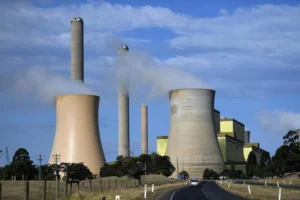Germany has committed itself to an ambitious long-term policy agenda to decarbonise the energy sector. The Energiewende – or energy transformation – policies aren’t cheap, but the German government says it’s a price worth paying for long term energy security and a low carbon economy.
In 2010, the government outlined the Energiewende’s goals: To reduce emissions by 80 per cent compared to 1990, and provide for 80 per cent of the country’s electricity consumption from renewable sources by 2050 compared to 2008. If that wasn’t ambitious enough, it made the task even more complicated by deciding to phase out all nuclear generation by 2022. The government pledged to achieve this in the most cost-effective way possible, while maintaining economic growth and high standards of living.
So far, the public have bought into the government’s long term vision and are backing the plans, despite rising energy bills. But the media is increasingly concerned the Energiewende’s policies will drive up energy costs, leaving consumers to foot the bill.
Wholesale energy prices
At the centre of the scheme is the government’s pledge to increase the amount of renewables in Germany’s energy mix without harming the economy. But not everyone is convinced the Energiewende will deliver on its promise.
As the Economist puts it:
“It is hard to think of a messier and more wasteful way of shifting from fossil and nuclear fuel to renewable energy than the one Germany has blundered into. The price will be high, the risks are large and some effects will be the opposite of what was intended.”
While this is a common perception, the figures tell a different story. Since 2010, the wholesale price of electricity has continued to decrease, because once renewables are built they have no fuel costs:
Source: Phelix Baseload Year Future, EEX Power Derivatives
Source: Phelix Peakload Year Futures, EEX Power Derivatives
While this means wind and solar are increasingly competitive – helping to get more low carbon generation on the grid – the declining cost of renewable electricity may have a less desirable consequence. Some fossil fuel plants are still needed to back up renewable generation. But cheap electricity from renewables could make fossil fuel plants economically unviable. A number of German gas plants have been temporarily shut down – or mothballed – as they struggle to compete with renewables and cheap coal generation.
The problem is exacerbated by a requirement to prioritise electricity from renewables over fossil fuels generation, known as the ‘merit order’. David Buchan, senior research fellow at the Oxford Energy Institute, explains:
“… if this capacity becomes effectively excluded from the merit order altogether, or is never in practice called by grid operators to generate, it will never earn a financial return and may, therefore, wither away”.
This means Germany must consider ways to support fossil fuel generation as well as renewables.
One solution could be a “focused” capacity market, where plants used to provide electricity at peak times are subsidised, but plants expected to provide electricity around the clock compete in the a market. Another alternative – favoured by the environment ministry – is a strategic reserve where gas plants which would otherwise be mothballed are paid to stay online in case the system needs a boost.
As more renewables come online and fossil fuel plants become increasingly uncompetitive, balancing Germany’s energy system becomes ever more challenging.
Household bills
Despite the wholesale electricity price falling, household energy bills continue to rise as consumers pay for increasing renewable energy subsidies.
It’s commonplace for the UK government’s policies to be blamed for rising energy bills, and Germany is no different. Bills fell between 1991 and 1998, but have risen continuously since then – and this is set to continue as more renewables are added to the mix.
Source: German Institute for Economic Research, consumer prices
But the Energiewende’s policies are only responsible for a portion of the bill hikes. German economics thinktank, the Centre for Economics Studies, calculates renewable subsidies account for about 28 per cent of the rise since 2000, but costs of electricity generation – mainly driven by the rising cost of fossil fuels – account for about 45 per cent.
So far, consumers have been willing to accept the bill increases as they back the Energiewende’s long-term goals and see the community benefits of the scheme. Private investors and farmers owned almost half of Germany’s renewable energy projects in 2012. This makes bill payers more amenable to rising energy costs as some of the subsidy goes back to their communities. Environmental thinktank, Heinrich Böll Foundationis, says:
“A focus on low prices is microeconomic thinking. Germans take the macroeconomic view and want to know whether that price is paid to large corporations, foreign entities, or back to their community. They are willing to pay higher prices back to the latter.”
The public’s willingness to take a slice of the subsidy pie for themselves has so far been key to maintaining support for the Energiewende.
Reform prospects
With the September election looming, some politicians have been keen to cut the costs of the Energiewende in the hope it will boost their popularity. But the reformers have their work cut out: Germany’s political system makes changing the way renewable energy is funded particularly challenging.
For example, some of Germany’s regions are investing heavily in renewable energy – with some, like Bavaria, wishing to become self-sufficient. This makes them more resistant to subsidy reform.
There is also bickering within the federal government. The environment ministry wants to lead the Energiewende, but the economics ministry is in charge of grid transformation. So Energiewende policies come with the risk of political infighting built in. The future direction of the transformation is likely to depend on who sits in those ministries at the end of the year.
Public support
In Germany, public support for the Energiewende has been robust despite rising energy bills. The government maintains the immediate costs will be worth it in the long run, and the public seems sold on the bigger picture – so far.
But with the European economy still in stormy waters, German elections in September, and ever rising costs it remains to be seen how long the support persists.













